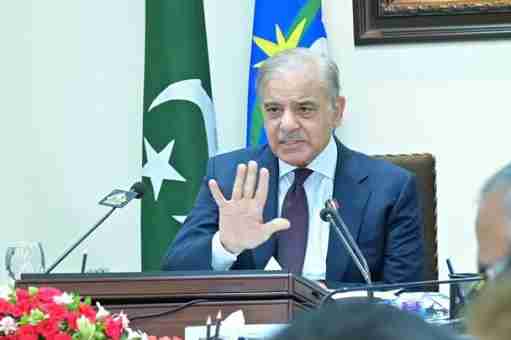Islamabad, December 5, 2024 – Prime Minister Shehbaz Sharif, on Thursday, issued clear directives to relevant authorities to ensure swift and effective tax collection in Pakistan. He emphasized the need for implementing strict measures to enforce the country’s revenue collection strategy. This was part of his broader vision to strengthen the nation’s fiscal framework, which has been a key focus of his government.
Prime Minister Shehbaz Sharif chaired a comprehensive review meeting on Pakistan’s current economic situation, focusing on the ongoing digitization process of the Federal Board of Revenue (FBR). He highlighted that the FBR’s digitization is a crucial part of the government’s broader economic reforms agenda aimed at improving transparency, efficiency, and compliance in tax collection. The digitization initiative is expected to revolutionize the tax system, making it more accessible, streamlined, and less prone to corruption.
PM Shehbaz commended the progress made so far in the FBR’s digitization efforts. He praised the finance minister, the state minister for finance, the chairman of the FBR, and the secretary of finance for their efforts in driving this initiative forward. He also expressed satisfaction with the growing fiscal space, noting that the economic team’s work was starting to bear fruit, which was critical for the country’s long-term economic recovery.
Prime Minister Shehbaz Sharif set a clear deadline, instructing that all major tasks related to the FBR’s digitization be completed by the end of this month. This includes finalizing the system for digital invoicing, which is expected to increase tax compliance and reduce loopholes in the tax collection process.
Additionally, PM Shehbaz highlighted the significant strides made in curbing the smuggling of petroleum products. He reported that the crackdown against smuggled fuel, combined with the reduction in petrol and diesel prices, led to a surge in the sale of petroleum products, reaching a record high of 1.58 million metric tons over the last 25 months. The 15% year-on-year increase in petroleum sales was hailed as a sign of the energy market’s recovery.
Further, the Prime Minister underscored the importance of timely decisions, such as the approval for sugar exports, which generated $500 million in remittances. He also stressed the urgency of completing the installation of video analytics systems for the cement industry and digital invoicing for small businesses, which would be operational by the end of the month.
The meeting also discussed other critical steps, such as the formation of a new board for Pakistan Revenue Automation Ltd (PRAL), the upgrade of its data center and hardware, and the establishment of a central assessment unit for faceless customs assessments at Karachi Airport by the end of the year. The meeting was attended by several key figures, including Deputy Prime Minister Ishaq Dar, Planning Minister Ahsan Iqbal, Finance Minister Muhammad Aurangzeb, and other senior government officials.
